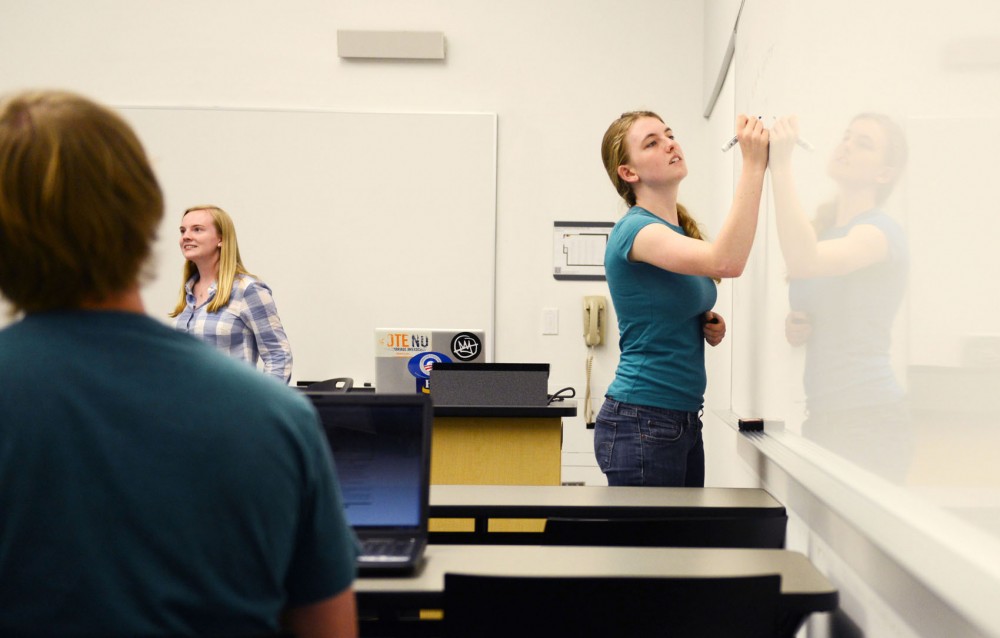This year’s Minneapolis city council election is the first time The University of Minnesota’s Socialist Alternative Club has backed one of its own members as a city government candidate.
The Young Americans for Liberty student group isn’t endorsing anyone, and neither are the University’s College Republicans.
Some University student groups are endorsing candidates in the upcoming city elections, but other politically active organizations aren’t because they could lose funding or because there isn’t an endorsed member from their party on the ballot.
The University’s Young Americans for Liberty group works to educate students on libertarian values, according to the group’s Student Unions Activities website. But YAL President Ehren Minkema said the group cannot endorse candidates or participate in any partisan political activity because the group’s funding would be at risk.
“For us to maintain any sort of funding from the school, we
have to maintain a position that we’re not endorsing any candidates,” Minkema said.
SUA assistant director Erik Dussault said student groups cannot apply for grants or student services fees for the “sole purpose of partisan political activity.”
Student Services Fees Committee advisor Megan Sweet said groups are considered partisan if they are affiliated with a registered political group or candidate and can receive money through the party.
“Since they are usually affiliated with a political party or a candidate that’s running for election, they usually receive funding from that party or from that particular candidate,” Sweet said.
Independent mayoral candidate Cam Winton spoke at a YAL meeting last month, but Minkema said Winton’s visit wasn’t a political move and any candidate is welcome to discuss his or her platform with the members.
The College Democrats are endorsing former city commissioner Mark Andrew for Minneapolis mayor and attorney Jacob Frey for City Council.
College Democrats president Laura Pratt said the group doesn’t receive funding from the Minnesota DFL, which created the group, but it occasionally gets money from its partnerships with Minnesota Young DFL.
Pratt said the group automatically endorses candidates that get the DFL endorsement. However, with 35 mayoral candidates on the Nov. 5 ballot, most of them DFL-affiliated, none secured the group’s endorse
ment.
Pratt said Frey stood out to the group because of his energy and ability to collaborate with different types of people.
Frey is running against two-term DFL incumbent Diane Hofstede in a race to represent Ward 3, which covers parts of the University. Frey received the party’s endorsement last April.
“He’s proven that he’s dedicated to involving everyone in the process — including students,” Pratt said.
The College Democrats have been participating in campaign activities like door-knocking and phone banking for Andrew and Frey.
“[Students] bring a tremendous surge of energy into our campaign,” Andrew said.
Mayoral candidates interested in the group’s endorsement spoke to a committee of College Democrats and Minnesota Young DFL over the summer, Pratt said.
“Mark really stood out,” she said. “We were impressed by his energy, passion and knowledge of progressive issues.”
Andrew said his campaign attracts students and younger voters because of a “shared idealism” to improve the environment and other problems like human rights issues.
The Socialist Alternative Club is endorsing Ward 9 City Council candidate Ty Moore. This is the first time the group has supported one of their own members as a political candidate, said president Brandon Madsen, a second-year graduate student.
“I think the Democratic Party has pretty much run the city, taking all the major posts for decades,” Madsen said.
He said Moore offers a fresh perspective for city issues like funding for the new Vikings stadium and home foreclosure.
College Republicans president Susan Eckstein said in an email that the group is not endorsing any candidates because there aren’t any Republican-endorsed candidates on the ballot. She also said the group will not host any campaign activities.
“We allow and encourage … campaign staff and any mayoral candidates to attend our meetings, to speak about the race and gather volunteers to help a specific campaign,” she said in the email.
Similarly, Collegians for a Constructive Tomorrow, another political activism group on campus, is not planning any election events, said president and political science senior Rachel Jansen.
In the past, the student group has hosted debates and forums on the University’s campus, but it won’t this year because of the large number of candidates who share similar views, Jansen
said.








